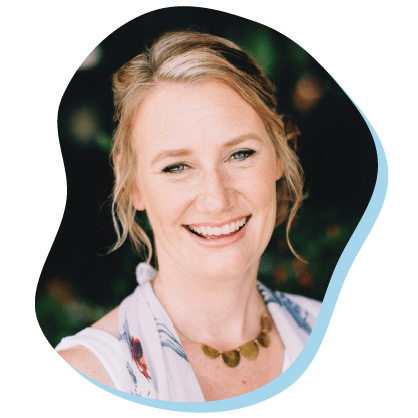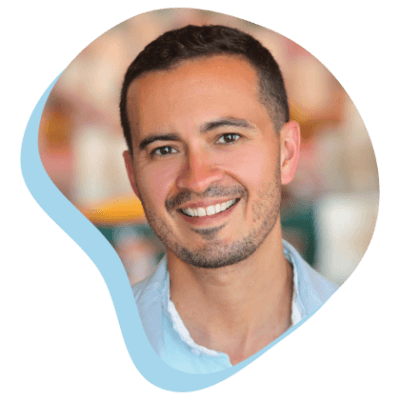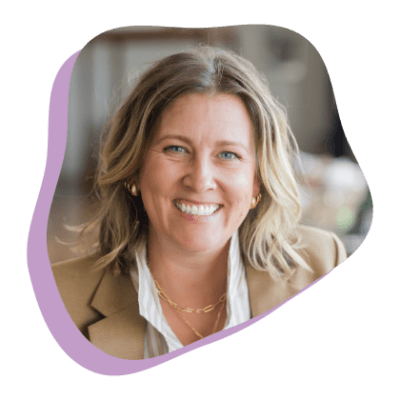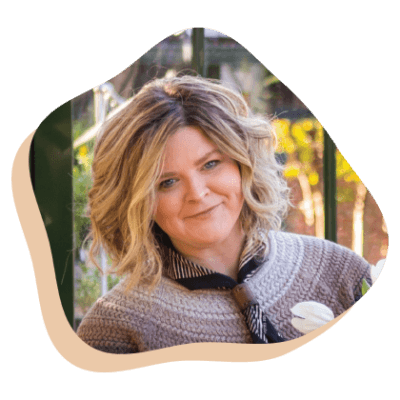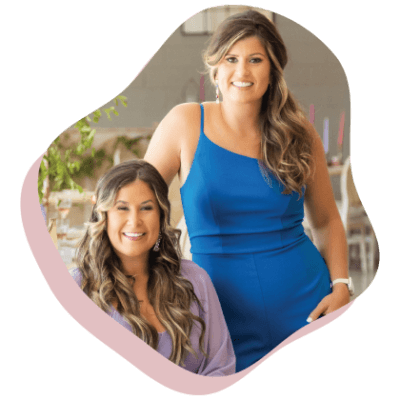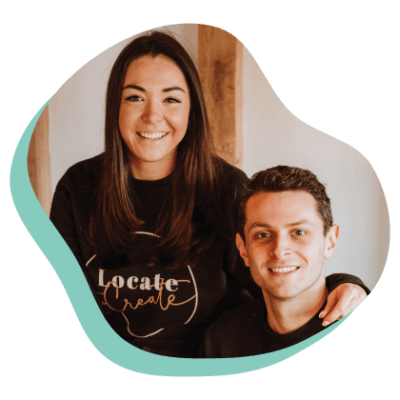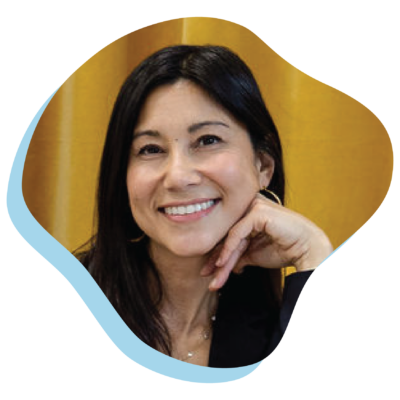Hello and welcome to the Trunk Show. I’m your host, Allison Howell, here to talk with leading professionals about their event rental businesses, hard-earned wisdom, and ongoing adventures in the industry.
The show is brought to you by RW Elephant, mighty inventory management software designed to help you conquer the chaos in your event rental business and reclaim your creativity, because the world needs more of the beautiful events and environments you create!
In this episode, you’ll hear my conversation with Amanda and Holly, also known as the Greenhouse Picker Sisters of Raleigh, North Carolina. They’re 5th generation pickers so as you can imagine, they have a unique and very vintage collection.
The sisters have a southern charm for days like sweet tea or glass bottle Coca Cola. But don’t let their sweetness fool you, they’ve built a profitable and growing business through hard work, grit, and sweat while raising families at the same time. You’re going to love their story!
Amanda Cox: So we officially started in 2015. That was like, “We’re legit.” We came up with the idea of a Facebook page in 2014. I still lived in Virginia and Holly lived in North Carolina and we had faced the hardest time of our lives.
We lost our dad. He was 49 years old. And we were just in a really dark place. And so Holly had this grand idea to start a rental company and I loved the idea. And so, at that time it was just to do tea parties, birthday setups, very low-key photo sessions, and so we launched our Facebook page.
Allison Howell: And so tell me, how did that grow out of that time of grief after your father passed away?
Holly Barton: I definitely intended to just stay home with my kids and then in the grief and hormonal nests of having another baby, I felt like and Amanda felt like the walls were closing in on us and we needed to do something creatively to come out of it.
I felt like we really wanted to honor our dad. We were pretty sad and I don’t think that we were really ourselves. And I don’t think that either one of us thought that was an acceptable outcome. We weren’t really honoring our dad. And so we started this company with just an idea and had no intention to ever do weddings.
We were just doing photography stuff, tea parties, had a love for vintage, had a love for the find, true pickers.
Allison Howell: Because your dad was a picker?
Holly Barton: We are fifth generation pickers. Our granddad was on American Pickers. We had a lot of vintage collection. And so our original collection was all vintage.
We also were just kind of a family that grew up with not a lot of resources. So we would go to the flea markets, we would go to the thrift stores, and just really use what we have. Our house was always clean and nice. But it was a lot of things that we had yard selling. How many Saturdays do we spend going to yard sales?
And we were asked to do our first wedding. And we said, “no, we would not do that.” But it was at our favorite beach with some friends that were coming from California and they didn’t have a rental company. And so they said, “just come and give it a try.” So we did and actually loved it.
Amanda Cox: And I remember Holly called and I was like let’s just send them an invoice, right?
And I actually still have a copy of it. It was like an Excel spreadsheet. And I literally, I think all in–Holly, correct me if I’m wrong–it was like $1,200.
For an entire truckload of stuff, fully set, styled, designed. We stayed the entire time and yeah, we traveled three hours or no two hours away and overnight accommodations that was also included in that price.
And we loved it. That’s really how we broke into the Raleigh market.
Allison Howell: Where did all the stuff come from? I mean because you have to have stuff in order to rent it out. Did you guys just think, oh, we’ll just pick up stuff or is this like stuff you already had in your garage?
Amanda Cox: We built our entire collection based on our clients’ needs.
That same client called Holly and said, “Do you have a hundred wooden mixed match chairs?” And we were like, “yes, we do.” And she called, and I remember going to all the thrift stores in Virginia and picking wooden chairs with my granddad. And that’s kind of how it started. So we started out with that and we had some furniture that was given to us from my granddad’s collection.
And then we just started saying yeses and we actually name all of our pieces off of who we buy them for. So if you go to our website, all the couches are who we bought it for.
So it helps you also to remember the names of the pieces. We only buy if we have a need. That’s a strict policy unless it’s a “no brainer”, which is what we call it, where we just find something that’s just really unique and we know it will rent.
Allison Howell: So you saw these opportunities here in Raleigh and people are starting to ask, “can I use this? Can I rent this? Can I use this?” And you sent that $1,200 spreadsheet invoice. And then what happened?
Holly Barton: We realized, “Oh, we really like this. This is fun.” So we turned my entire third floor into a warehouse with all of our stuff.
And I shelved the entire third floor. And I mean, some of our original clients came to my house and went to the third floor. It was so funny.
Amanda Cox: We slowly grew. When I moved here, we moved all of the stuff that was in my garage that I was using in Virginia. We put it in a storage unit and it slowly grew. I think we had up to six, right?
And then we outgrew that and we were getting clients that really didn’t want to go to storage units. And so we got a 2,000-square-foot warehouse that was like a temp space.
We were there for about a year, and then we got our current warehouse and that side, half of it, which was 4,000 square feet.
And now we have the full building, which is 8,000-square-foot. And then we have eight shipping containers in the back.
Allison Howell: You were already creative. You already had this passion. You already had the drive if only to prove your husband’s wrong. And so how did you develop that “sophistication” or the business knowledge in order to make it profitable?
Holly Barton: Yeah. So we were using a notebook for a long time before you guys. And then we had a few interns that came in and were like, “This is ridiculous. You guys need to get legit. You need to find a software to host your rentals.” And we were like, “What? We are not doing this. What is happening?” When I look back, at least for me, and I’ll let you answer after this, we would get money and we would pour it back in.
We would get money, we would pour it back in, we would get money, we would pour it back in. We were very passionate about not going into some crazy debt for this business where we couldn’t walk away. So we would load, we would unload the trucks, we were everything, we were marketing, we were labor, we did that for years.
We got your software, which was amazing. We have still done zero marketing, like paid for marketing. It’s all been word of mouth until this year. We really didn’t know what we were doing.
Amanda Cox: Looking back, I think the biggest thing that we did right, because I think we did a lot of things wrong, is we have always taken care of our client first.
So you’re not growing too fast, knock on wood, like a client who was not satisfied. We go above and beyond for every single client, event planner, venue. And I hear it often that our guys are just like that. And I think that they know that if they’re asked to do something, it is always “my pleasure” attitude.
And we have seen time and time again, we take care of our people and, you know, hope that they take care of us. Sometimes they don’t. And that’s okay too, because then we learn who our tribe is. And I think that’s fair, right? We don’t trust everybody. It doesn’t mean we don’t serve them. We have so much to learn.
And I did tell Holly yesterday, and this is just a little plug for Lend & Gather. We have to go to that this year because we have gotten as far as we have by the grace of God, by hard work, sweat, blood, tears, and a great industry. Our industry is awesome, but we still have so much to learn on the business side.
Allison Howell: What a great attitude to have. I think you’re right that you can’t go wrong in serving people and putting your clients first and recognizing that as you care for them. That reputation that you’re building is going to bring good things back to your business. But also there’s always room to grow, right?
There’s always more to learn. There are always ways that you can improve. There’s always lessons that you can learn and things that you can do differently next time. Because that’s what entrepreneurship is about, right? Recognizing and celebrating our successes and then saying, okay, what’s next? Right?
Because if we’re just satisfied with the status quo, then we’re either not going to grow or we’re going to start shrinking because everything around us is growing. But at the same time, you don’t want to just constantly be saying, what’s next? What’s next? What’s next? And not celebrating all those things that have been milestones or that you’ve done right or that have gone well because otherwise you’re not content.
Amanda Cox: In our roles that we now play, we used to just both do everything. And as we have evolved.
Holly Barton: That did not work.
Amanda Cox: It did not work. What are you good at? What am I good at? What are neither one of us good at? We can hire it out. Then COVID changed everything. So we can offer more to our business than we oftentimes do.
We just keep hiring people and that is good and bad. We have an amazing team that basically runs the show. Because right now in this season of life that we’re in, Holly has 9, 11 and 14-year-old kids and mine are 3, 11, and 13.
Holly Barton: We pretend that we don’t run a very successful business. We’re in the community, we’re at the school, we’re at the field day, we’re at the–you can count on us girl, you can count on us mom, you can count on us wife.
Allison Howell: That’s exhausting! Figuring out what to make for dinner, and then getting the food to my house, and then actually making it for dinner, and then enduring at least one out of three children who’s going to say, “I don’t like this.” I mean, that battle alone, whew, it’s all I can do. But having done that after a whole day of work, man, it’s a lot! And then, to add on the volunteering at school and the pickups and the drop offs and the shoe sizes and all the things on top of it.
Holly Barton: We’re both plugged in very heavily to our churches and our neighborhoods. And so there’s not a day that I really do my life alone. Someone’s hands are always in it somehow, both of us. Whether it’s our mom or our grandma or our friend or our neighbor or, you know, a random mom in the neighborhood who I feel safe with my kids. “I don’t really know you, but can you take them to this place?” You know, I mean, that’s where we’re at.
Allison Howell: Yeah. Yeah, and how do your kids feel about your business?
Amanda Cox: They’re there working right now. They’re 11, almost 12-year-olds. They’re so funny together. They basically came into the warehouse today and took over the show.
Yeah. And we are like, “Oh, I have to go to work.” “Can we go, can we please go, can we go?” And we’re like, I guess we’re doing something right? Because when they do go, they are good at it and they want to help. And they’re smart with their thinking. And so I’m like, okay everything comes from this business. We at least are teaching our kids to have grit. And I think that’s very important.
Holly Barton: I think that they’re really proud of us because as they get older, they’ll look up our website at school and be like, look at my mom and my aunt’s business.
And send inquiries and be like, “I showed them that.” And they tell everyone about us.
But I think in the last few years, I’ve turned 40 thinking about my life and had times where you just ask yourself, “What am I doing?” Because this all just feels like a lot at times. I have been really encouraged by my kids, like even in the car, if it’s been a crazy few weeks and we’ve barely seen them.
And then I’ll say, “I’m so sorry. I haven’t been around or this just feels like a lot.” They will say, “Mom it’s fine. We’re really good. And you guys have built something. Keep going.” And a lot of people know us in our community because we are successful women business owners who people respect. And I do think it’s made a difference. I truly think it has impacted them.
Allison Howell: And as you think about the ways that you caught those values from your own parents as they had these hobbies-turned-side-hustles it seems like your own kids are developing those values themselves as they watch you. That’s something to be proud of.
Amanda Cox: My son is planning an epic lemonade stand with a raffle and candy prizes. And he painted a sign. He literally got the jigsaw out yesterday and cut and spray painted.
Allison Howell: My kids are all about the lemonade stand right now. They started going door to door in a wagon because they weren’t getting enough customers in front of our house.And I was like, “Great. Okay, sure. I think you can upcharge for that.”
Amanda Cox: I’m going to start me a lemonade stand. They make some money! $70 one day!
Allison Howell: I know. I think a little bit of it though, is that the people are like, “Oh, you’re cute and an entrepreneur.” I don’t think they’d do that for me.
So you’ve mentioned a couple of times, you don’t do the same roles anymore in your business. Amanda, tell me your role. And then Holly, tell me your role.
Amanda Cox: I would say CFO for me, I do all of our finances, payroll, quickbooks, bills, logistics, team planning, and custom build projects that we do.
We’ve started to get more into that these last couple of years. And I have the vision, I think for that. I still do sales. Holly and I do all the networking together. That is one thing that we do together.
Holly Barton: Larger networking events. I do all of our sales meetings, marketing, and then I serve as a counselor for our business. I think I’m more of the hype squad in our business. We both have a lot of vision for our business, but more of ideas. And I do live in the clouds most of the time.
Amanda Cox: We also never go through hard times together. If she’s down, I’m like, “It’s okay. It’s going to be fine.” If I’m down, then she’s that for me.
I definitely feel like I carry more weight, not by Holly’s fault, but just because, especially for this year, and I’ll speak for our industry in North Carolina, it’s just wonky. You go into the month and you’re like, what is happening? And then at the end of the month, it was fine. It’s just our industry is transitioning to a lot of late full service. Full service, just booking for the fall.
Allison Howell: And it’s interesting because that’s not just North Carolina. I got to say that is the story I hear in so many regions this year, especially 2024, is either light or late. People are booking later and later. It’s either a post pandemic trend, or I’ve heard it’s an election year trend, who knows what will happen next, but I hope that it’s not a new phase in weddings that we keep just having everybody be last minute for the rest of eternity.
Holly Barton: The networking events have helped a lot to just realize that it’s across the board for all of us.
Allison Howell: To feel like you’re not alone.
Holly Barton: Are we missing it? Or is it us? Cause we sent out a survey, got nothing but good feedback. We left a room for there to be very open, honest communication.
And so you just think it must be something we’re doing. Until you realize that it’s all of our co rental companies too.
Allison Howell: That validation is huge, right? In those hard times, having that support from each other and then validation that you are not the only one makes all the difference and helps you know, I shouldn’t tweak everything, right?
I shouldn’t change everything and throw it all out because it’s working. It’s just, it’s not me. Okay, so on the one hand, having each other in those down times is a real support for each other. On the other hand, having a partner can have some times of conflict. How do you guys deal with conflict or disagreements in your business?
Amanda Cox: I think we’ve learned and grown and have faced very difficult times in our business when life collides relationally, time when marriages collide, when having kids collide. When I had a baby three years ago and obviously that pulled me a little bit away from the business. She stepped up.
She’s had personal things where I’ve had to step up and that did create conflict. But I think we have worked through it and ultimately when we started this business, we knew and it still stands true. If she’s ever out of it, I’m done. If I’m ever out of it, she’s done. If it’s coming between us, then we’re done.
Or our families, in any way, because my mom also works for us full time.
Holly Barton: And lives between us.
Amanda Cox: Lives between us, so she lives with Holly for two weeks and she lives with me for two weeks. Our grandparents are still active in our lives. My grandma helps with my little girl and my granddad helps if we need something fixed or we just need help.
Holly Barton: And I feel when we first started our business, I think we were surprised by the conflict at times because we really were not in the right job roles. We would fight pretty toxically, say comments in anger that were not appropriate and it really got really negative. And I think that we both just decided to grow, forgive each other, and kind of start afresh and just say it really wasn’t my dislike for you or our relationship. It was actually lack of wisdom and realizing that when you grow to the level and as quickly as we did and didn’t have the infrastructure, you’re going to feel the weight of that.
I want to preserve my relationship more than I do the fight or what’s in front of us. We’ve had to learn how to filter what we say, think before we speak. And we don’t want to set that tone in our warehouse either. So we’ve just shut it down and said we’re going to make this a place of unity and peace.
It’s not that it’s a lack of conflict. It’s not that it’s perfect. There’s still tension. It’s just that it is in a way that’s honoring to other people that I think we’ve had to really grow and learn how to do better.
Allison Howell: It sounds like you’re not ignoring it when there is tension or when there is disagreement.
You’re deciding what’s most important and you’re choosing your battles, if you will. The term in our marriage is “fight fair.” And my husband is my business partner. So similarly to you being sisters and business partners, the relationship is super complicated because you develop a dynamic and then there’s a pattern that happens, right?
And whether the pattern’s in your kitchen or the pattern’s in your office, that happens whether you’re intending for it to or not, because that’s what you practiced and it’s the roles you’ve gotten into.
Amanda Cox: And most of the time I find that if you sleep on it, you’ll feel very differently in the morning. So it doesn’t always need to be talked about right away, but Holly and I often rant to each other. I’ll call her and I’m like, “I really don’t feel okay about this. I’m not going to do anything about it yet, but I just want you to know I’m not okay with it. Just want to say it out loud.”
Allison Howell: Thank you for sharing that. That’s really vulnerable of you to share. And I think a lot of people experience that in their relationships, whether they’re their business relationships or other relationships, and don’t always know where to go with that.
So tell us a little bit more about your collection. You started this with all these pieces that are coming from your garages and your family and things you’ve been picking, and you said it really evolved from there and now has a more eclectic feel and has a lot more modern pieces. You mentioned that your collection is really driven by requests from customers. If you get a request tomorrow from a client, how do you decide, are we going to buy it or are we not going to buy it?
Amanda Cox: We price check it, we see if it’s available, if it can be here in time. A lot of times we find that people will do stuff for next month and we have to get it shipped, it has to get to us or get it built. I would say as a general rule, we like for it to be paid off in at least three rentals. Now, that does not always happen. We have recently purchased some pieces that were out of that wheelhouse. It’ll take us a long time to pay them off, but we really just felt like they were valuable.
Allison Howell: You’re laughing, Holly.
Holly Barton: I mean, I pushed for them, so…
Allison Howell: You’re the one who’s breaking the rules, huh?
Amanda Cox: It was one of those things where it was not important enough for me to put up a fight, but I actually really disagreed with it.
But it was fine. In two to three rentals, two is ideal. Three for sure most of the time. And we’ve also had a few custom orders made overseas that we’ve had shipped in. And how we determine that is, is it in our market? And if it’s not in our market, then it’s valuable. And so we designed two different collections of stuff that we had made just for us.
Holly Barton: We’re trying to push what we already have for space, but we also recognize that we have to have variety and have new stuff that’s current and trending, which is, hence, the stuff that Amanda is referring to that was super expensive. And for me, I want to do different things and have different stuff where people are talking about us and they want to use us.
And it’s not like they just keep having the same stuff. They’re actually bringing really neat ideas and trends to the market. Like I would rather be the trend setters and just be on people’s mind, then just go in the background and just be so tight that we just use what we have all the time. Because it just gets old. If it gets old for us, it gets old for our clients.
Allison Howell: How do you decide how to price something then? Are you always basing pricing on that purchase price? Or do you have some other kind of process for how you price what you’re going to rent?
Amanda Cox: Yeah, so this is a really good question and we’re hoping that you cover this at Lend & Gather.
Allison Howell: Okay! Let’s have a conversation.
Amanda Cox: We price things based on what we spent on them. So a lot of the time if it’s a custom purchase, that first rental will be a little bit higher than what it will be.
We have done that recently. And that has worked. But most of the time we do it comparable to other items we have.
Most of our warehouse is loungewear. And we do lounge packages. So it’s the couch, the sofa, the chairs, the side tables, the tchotchkes, the rug, the pillows, it’s all included.
That is what we like to do. That is what we think looks best. It creates a feeling; it creates a memory. It is not a la carte.
We can do it a la carte and some of our clients do that, but most of the time they’re going to rent a lounge package. And then we do a lot of bars and bar backs and backdrops.
And I would say in those categories, there’s a range. And so if we build a new backdrop, we basically price it at what popular backdrop is renting for, right?
Because if it’s popular, it means people are paying what we’ve priced it at. So there’s not a lot of us in our market that do what we do. And the ones that are, I don’t know how you go to them and say, “Hey what are you pricing your lounges at?” We don’t do that. I guess when we feel, like in our survey, Holly was talking about, we sent out, “Do you feel like we’re fair in our pricing?”
And we try to just stay in that, we had nobody say that they thought we were too expensive. I think at times for certain clients, obviously they would prefer us to not be, we are not the cheapest option in the market. We just can’t be, we have a $1,400 minimum in rentals for delivery and we try to stand by that most of the time. If it’s during the week or in a slow month, we’re a little bit more flexible, but there’s value in we say at least three areas of your event with specialty rentals and that will most likely get you those three areas.
Allison Howell: What do you mean when you say there’s value in three areas?
Holly Barton: Make an impact. So when I do our sales meeting, I tell everyone our sweet spot and where we find the most value for specialty rentals is to really create three factors in your wedding that resemble you guys that people will even say this actually looks like such and such.
And you can do that through specialty rentals and really personalize it. And that’s it. What we can do for you, but to really make the impact you need at least three to four, I always try to tell them that.
And I do mean it. If you have an awesome welcome, you have the really custom bar, a really beautiful soft seating that is really tailored to you, and it doesn’t have to be customizable with names and wallpaper, but just really resembling the wedding aesthetics and the couple. That’s what we like to do the most. That’s our sweet spot. That’s where we feel like we are really showing up and creating a product that we’re really proud of. And that’s really what we try to do with our clients.
Allison Howell: And I think that is also a great boundary or parameter for them to think I don’t have to get everything under the sun, although obviously you want them to, right? But if they’re trying to see, where am I going to make the most impact? They can imagine, okay, I can do three things. I could do a seating chart and a bar and a lounge area, or I could do a ceremony backdrop and a seating chart and a sweetheart table, or you know, they can think three areas. And that feels so much more manageable for somebody who doesn’t know where to start.
Holly Barton: I think it’s an easy sell because we do believe that it does make a difference.
Allison Howell: Do you find that any of those particular areas, if you’re thinking backdrops or bars or lounge furniture or any other particular kinds of inventory, is the most profitable in your business that you think like you’re renting it over and over and over. So at the end of the day, it’s making you the best return on your investment.
Holly Barton: I definitely think it’s the couches and the soft seating. We still have some of our original couches that are still making us money. I would like to see people in our industry just use what we have more they do, but they’re not really our clients.
Those are actually more of the random people that are coming to us. The people that are just google searching or don’t know us, they just want it to be highly customized, unique, never been used before. And that can be difficult at times because that’s not really profitable for a business, and so we’re trying to balance that out.
We’ve done more customization than we’ve ever done this year. We like to be at these really amazing events, but I don’t know in the end. We don’t need to be at the trending weddings of this year. We just need to be at a lot of weddings that just make us more money.
Amanda Cox: Yeah, I think Holly’s talking about the luxury events where we’re doing all of this custom stuff, but it’s taking our entire team. Paint is unbelievably expensive. Everything is freshly painted every weekend. It’s freshly painted. It’s freshly cleaned. Our team does go above and beyond, but it’s quite costly.
Allison Howell: That’s a very high standard.
Amanda Cox: Is that really profitable?
Allison Howell: Right, is it giving you the return?
Amanda Cox: Right and it isn’t in the busy months where we actually make money as a business. We lose money in those months, but it takes those months. It’s just the weirdest thing. We still make profit, but it’s not the biggest profit margin, right? Like in those months, our profit margin is actually smaller than in the slower months. It’s because we’re putting so much money out and overstaffing and sub temp staffing.
Allison Howell: It’s tricky because the higher the budget is, the higher the expectations, right? And so the higher the expectations, the more staff, the higher quality, the more labor, the more profit, paint and materials you have to put into it. And so there’s a sweet spot where you can find here’s how much we can charge and here’s how little we have to put into it, and this is my margin. Right?
So you’re really trying to maximize the margin, not necessarily just trying to maximize that top line.
Amanda Cox: And we don’t do that well. This is what I was saying, like I’m really hoping to learn and to get better at is that we just do it.
Allison Howell: Because you’re putting your customer first.
Amanda Cox: There’s no margin. There’s no numbers. There’s no budget. It’s just Oh, yeah, that we can buy that. Yes, we can do that. And at the end of the day, that is something that we have to get better at. Because to a fault, we are sacrificing and it’s costing us. That is where I wish our husbands were more involved.
Holly Barton: But they just wouldn’t do that. They would just be like, “We’re not doing that.”
Amanda Cox: And I don’t think that they would have gotten as far in this business as we have because of that. I think that there’s value in what we do, but I also think that it’s hurting us.
Allison Howell: Right, there’s a balance between the risks you’ve been willing to take and the profit you demand from the business. And you’re constantly having to balance those things.
Holly Barton: When you get to these crossroads, like we’re about to celebrate our 10 year anniversary, it’s a good time to just re-evaluate and have these conversations.
Think about your wins and how far you have made it. Where are we going? What do we want to do?
This has been an awesome 10 years. It is gone incredibly well, but where are we going? What do we want? And I think that’s exciting, but also there’s some things that are just not working.
Allison Howell: No, I think that’s a great place to be though, because you’re going in with your eyes open, and with a lot of exciting possibilities. But tell me as you approach this 10 year mark, what are some of those milestones or moments in your business that you truly have celebrated? What are you most proud of? Even if you didn’t have a cake and confetti.
Amanda Cox: Up until COVID, we had no debt, so we never took a loan out for our business. We did have to do an SBA loan to get us through COVID. But it still to this day remains the only debt that we have. Aside from our box trucks, the ones that aren’t paid off.
When we did have a business coach, he was really proud of that and our numbers and how we’ve built a million dollar business. We do about 600 events a year. We are women ran and owned. We had our biggest event ever this year and it also showed us that we are super capable. We have the best team we’ve ever had.
Holly Barton: For me it’s all the people, the relationships and the expansion of our influence in our net in our community. We take our wedding clients very seriously and we know we will all move mountains that day to make sure that we don’t let them down because we do care. There’s a lot of moms that we interact with and we just want to have coffee with them and just help them ignite that passion again, because they just don’t know how to get it back.
Allison Howell: Those are incredible things to be proud of. What brings the two of you joy right now in your business?
Amanda Cox: When people walk into a room, there’s a feeling that they get. And I think one thing in our business that we really value is making sure that there is a feeling and it’s not just a couch. It’s more than that. And sometimes it’s very difficult to do. But when we get to do it for ourselves and our own friends, that’s what brings me joy.
Allison Howell: Fantastic. It’s been so lovely to talk to you both. Thank you so much. I really appreciate it.
Holly Barton: Thank you so much, Allison. Have a great day.
A big thank you to Holly Barton and Amanda Cox, aka the Greenhouse Picker Sisters. You can find all their info in the show notes.
And a big thank YOU for listening to The Trunk Show brought to you by RW Elephant, mighty inventory management software designed to help you conquer the chaos in your event rental business and reclaim your creativity, because the world needs more of the beautiful events and environments you create.
We hope you enjoyed the show! We’re releasing episodes every other week, so be sure to follow us on your favorite podcast app. As always, I’m your host, Allison Howell. Happy renting!
